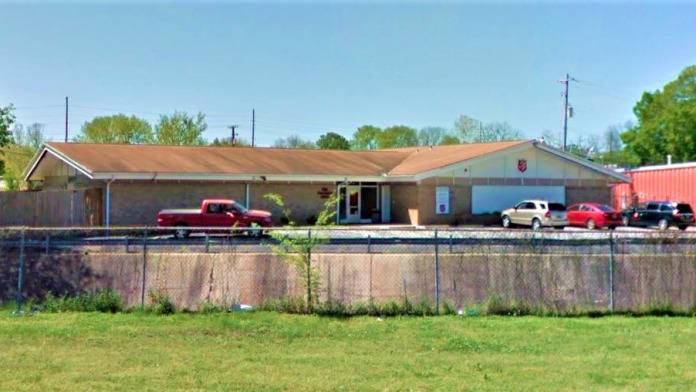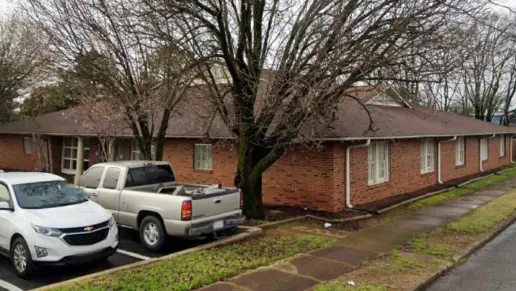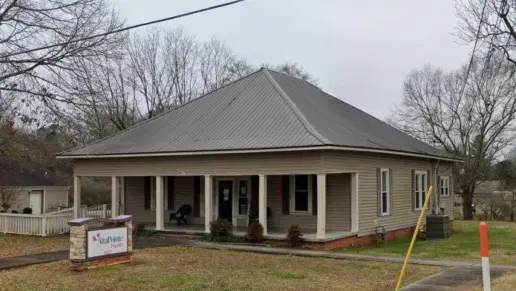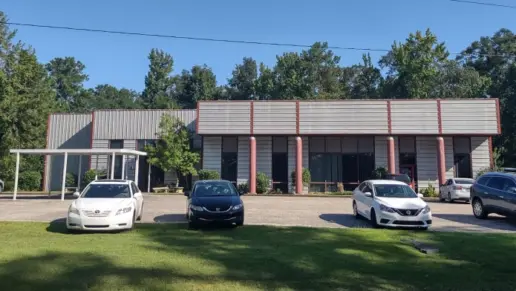I felt enough confidence with the staff in general that if I ever needed further assistance all I would have to do is go to the administrator's office. They individualize the care they provide you, and that makes x100 times more effective. This place is a port in the storm o ...
About The Salvation Army – Corps Salvage and Rehabilitation Center
The Salvation Army – Corps Salvage and Rehabilitation Center in Huntsville, Alabama, is a globally recognized nonprofit organization that serves individuals, families and the greater community. This adult rehabilitation center provides support to adults who have a substance use struggle. This is a residential treatment program that utilizes a faith based approach to care. While the services through this program are offered free of charge, there may be a nominal fee if you have a regular income.
The adult rehabilitation program is a residential treatment program that’s designed to help you navigate your recovery from drug and alcohol use. At the heart of this program is their work therapy approach. You’ll work in an affiliated Salvation Army thrift store or through another position with the organization. Through this work therapy program, you’ll learn essential skills that will help you rebuild your independence. You’ll also learn how to communicate effectively with others and how to handle stressful encounters when they arise.
This work therapy program is supplemented by faith based counseling. Counseling happens in both individual and group settings and is rooted in evidence based practices along with Christian faith approaches. You’ll work one of one with experienced addiction recovery specialists. Care is offered from a faith based lens and will empower you to turn to a higher power when the circumstances get tough.
You’ll also get connected to 12 Step style programs like Alcoholics Anonymous or Narcotics Anonymous. This will help you feel supported because you’ll have access to peers and mentors you can turn to as well.
Facility Overview
Latest Reviews
Rehab Score
Gallery

Location
Other Forms of Payment
Medicaid is a state based program that helps lower-income individuals and families pay for healthcare. Medicaid covers addiction treatment so those enrolled can use their coverage to pay for rehab. When a program accepts Medicaid the client often pays very little or nothing out of their own pocket.
Medicare is a federal program that provides health insurance for those 65 and older. It also serves people under 65 with chronic and disabling health challenges. To use Medicare for addiction treatment you need to find a program that accepts Medicare and is in network with your plan. Out of pocket costs and preauthorization requirements vary, so always check with your provider.
Addiction Treatments
Levels of Care
Treatments
The goal of treatment for alcoholism is abstinence. Those with poor social support, poor motivation, or psychiatric disorders tend to relapse within a few years of treatment. For these people, success is measured by longer periods of abstinence, reduced use of alcohol, better health, and improved social functioning. Recovery and Maintenance are usually based on 12 step programs and AA meetings.
Drug rehab in Alabama provides medical or psychotherapeutic treatment for drug dependency. Methods of treatment often include a combination of medication, counseling, and recreational therapies.
Many of those suffering from addiction also suffer from mental or emotional illnesses like schizophrenia, bipolar disorder, depression, or anxiety disorders. Rehab and other substance abuse facilities treating those with a dual diagnosis or co-occurring disorder administer psychiatric treatment to address the person's mental health issue in addition to drug and alcohol rehabilitation.
A combined mental health and substance abuse rehab has the staff and resources available to handle individuals with both mental health and substance abuse issues. It can be challenging to determine where a specific symptom stems from (a mental health issue or an issue related to substance abuse), so mental health and substance abuse professionals are helpful in detangling symptoms and keeping treatment on track.
Opioid rehabs specialize in supporting those recovering from opioid addiction. They treat those suffering from addiction to illegal opioids like heroin, as well as prescription drugs like oxycodone. These centers typically combine both physical as well as mental and emotional support to help stop addiction. Physical support often includes medical detox and subsequent medical support (including medication), and mental support includes in-depth therapy to address the underlying causes of addiction.
Programs


Clinical Services
Whether a marriage or other committed relationship, an intimate partnership is one of the most important aspects of a person's life. Drug and alcohol addiction affects both members of a couple in deep and meaningful ways, as does rehab and recovery. Couples therapy and other couples-focused treatment programs are significant parts of exploring triggers of addiction, as well as learning how to build healthy patterns to support ongoing sobriety.
Research clearly demonstrates that recovery is far more successful and sustainable when loved ones like family members participate in rehab and substance abuse treatment. Genetic factors may be at play when it comes to drug and alcohol addiction, as well as mental health issues. Family dynamics often play a critical role in addiction triggers, and if properly educated, family members can be a strong source of support when it comes to rehabilitation.
Group therapy is any therapeutic work that happens in a group (not one-on-one). There are a number of different group therapy modalities, including support groups, experiential therapy, psycho-education, and more. Group therapy involves treatment as well as processing interaction between group members.
In individual therapy, a patient meets one-on-one with a trained psychologist or counselor. Therapy is a pivotal part of effective substance abuse treatment, as it often covers root causes of addiction, including challenges faced by the patient in their social, family, and work/school life.
Life skills trainings involve all the skills a person must have in order to function successfully in the world. These include time management, career guidance, money management, and effective communication. Truly successful addiction recovery is based on the ability to not only live substance-free, but to thrive. Life skills teaches the practical necessities of functioning in society, which sets clients up for success in life, and therefore sobriety.
Staff

Co-Director
Contact Information
305 Seminole Drive
Huntsville AL, 35805


